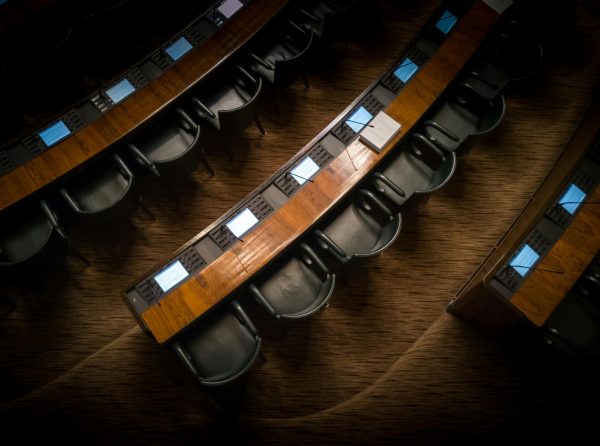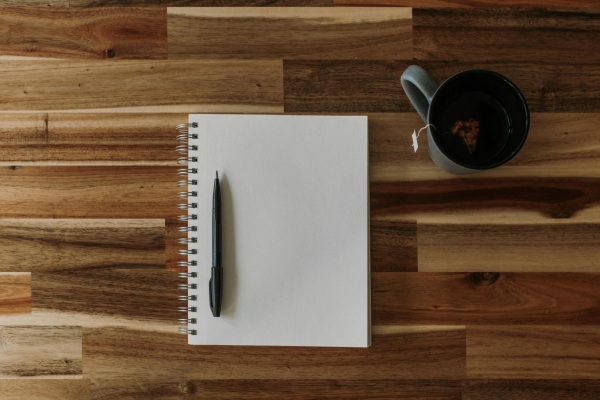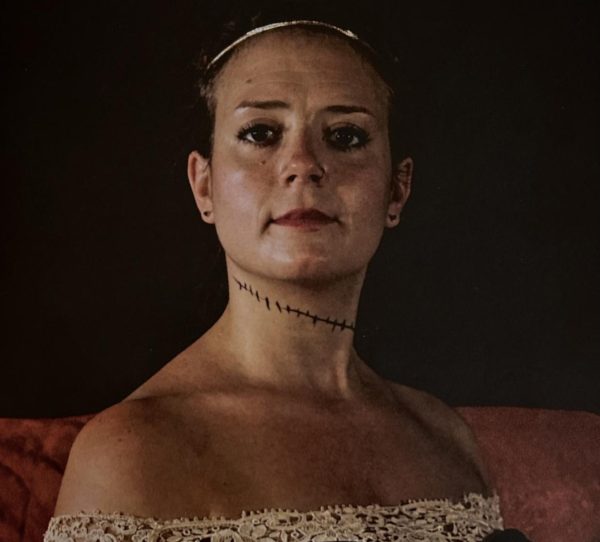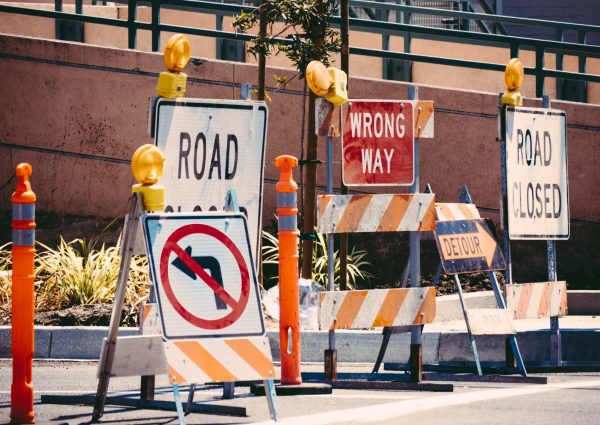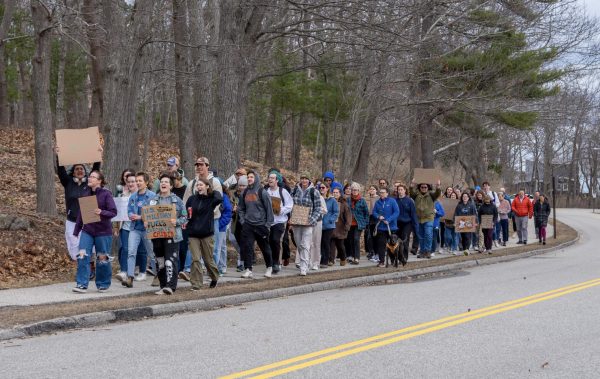Be Body Positive
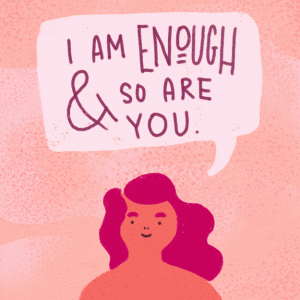
Dear UNE,
Without a doubt, you are beautiful. You’re amazing and wonderful in so many ways. You’ve made it this far in the year, in your life, and that’s something to celebrate. You really are spectacular.
It may be hard to believe me, but that’s alright. Many at this school, in this country, in this world aren’t happy with ourselves. And when we don’t believe there’s anything great about us, how can we listen to others who make similar claims?
That is why body positivity is so important. It can be a tool to examine the assumptions you may hold about yourself, to find out where they came from and to shift into a more positive outlook.
Hearing those two words in particular can be a bit off-putting for some, and this is because of certain ideas associated with the term ‘body positivity’. Many assume it is only relevant for women of a certain size. But this is far from the truth. Individuals of any size and gender can benefit from it.
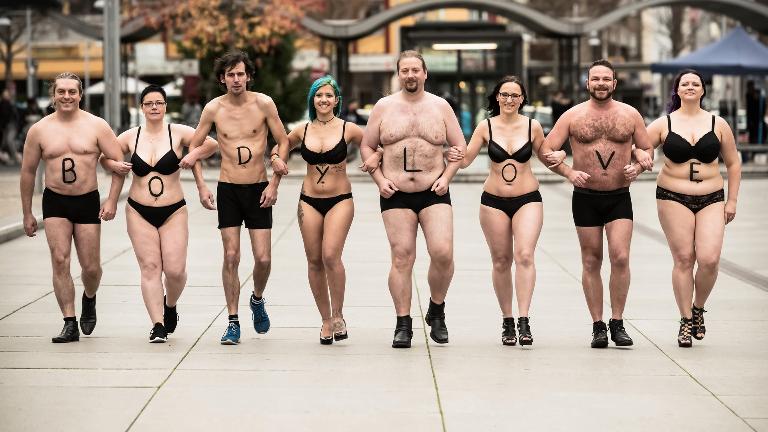
Malorie Dunn, founder of SmartGlamour, a body positive fashion line, describes body positivity as “understanding that your worth and what’s going on with you physically are two separate entities.” How you look should not make you somehow lesser than those around you, and this is essential for all people to understand. You don’t need to meet a certain threshold of physical attractiveness to be valued. And with society’s standards for beauty always changing, we shouldn’t be giving them the power that we do.
It’s undeniable that people with larger bodies are disproportionately affected by discrimination and shaming, so it makes sense that body positivity mainly centers around support for them. However, Ellia Manners, a former counselor in the state of Maine, says that how a person feels about their body often has nothing to do with their weight. It has more to do with self-esteem, the confidence and satisfaction in oneself. People with lower self-esteem tend to find a target for their negative emotions, which can be any aspect of themselves. For example, she said that her friend hated her ankles and would not buy clothing that showed them. Typically, though, body size is what’s most targetable for people, because it isn’t always something that can be hidden. “It becomes a way to dismiss and discount yourself, to put yourself down,” Mrs. Manners explained.
Going further, she spoke of “that one negative phrase” that sticks with you even after hearing millions of compliments. The phrase could be anything; ‘I need to be more muscular’ or ‘I’m ugly’. It negates everything good and zeroes in on everything bad. Mrs. Manners believes that body positivity, then, can be way through which you “learn to give yourself kindness and love” rather than accepting abusive thoughts.
We all may have vastly different reasons for feeling the way we do about our bodies, but I’m willing to bet the media hasn’t helped any of us. Following attractive actors and actresses, you might ask yourself if you ought to be trying harder. Scrolling through Instagram and seeing so many amazing human beings, you might wonder if they have a secret to their success that you’re missing. It’s very easy to compare yourself to them. To judge yourself as inferior. You start doing it in everyday life, too. Everyone you pass while walking, others in the lobby or waiting room, even your closest friends. It seems like they’re all so much better.
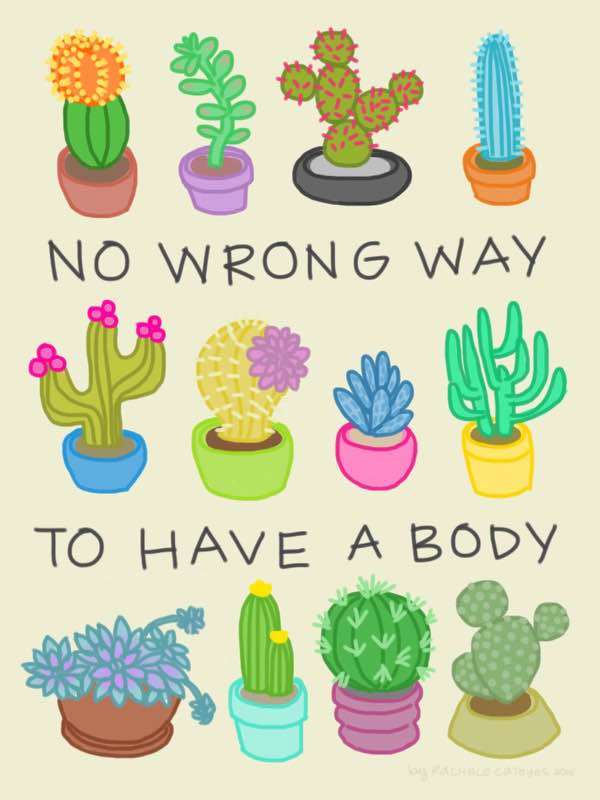
But I’ll tell you a secret: you’re not alone. The vast majority of us are constantly comparing ourselves to others, hearing that voice that tells us to keep working on our appearances. Some just don’t vocalize this as much as others. There’s this idea that asking for help makes you weak. That accepting this phenomenon as a problem is, in and of itself, a problem.
Please understand that there’s nothing wrong with you; you’re not the only person who feels out of place. Life is a crazy jumble of puzzle pieces, and not everyone can make them fit together right away. It takes time, patience, and acceptance.
Of course, I’m not expecting you to let go of your insecurities simply by reading this article. I just want you to start thinking about it. I want you to look further into the body positivity movement and see how many others are fighting alongside you.
If you’re on Instagram, try following i_weigh, a body positive account started by actress Jameela Jamil. If you enjoy podcasts, try listening to Food Psych, which confronts and dissects the dangers of diet culture. There are so many more resources out there, so I encourage you to find whatever you can.
One last thing to note: being body positive does not mean you must be happy with yourself 24/7. That really is impossible. Low moments filled with familiar negative feelings should not be seen as personal failings; you haven’t messed up or skipped a step. You’re starting a journey, and journeys tend to take some time. And even when you do feel you’ve reached the end, there still may be times where you need to return to it. Where doubts resurface. Again, this doesn’t mean you’ve done something wrong. Trying and doing the best that you can is what’s most important.
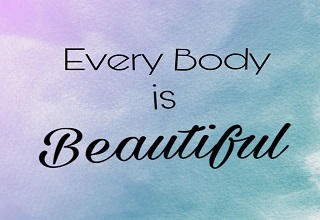
Nevertheless, the journey may be very difficult. Since low self-esteem and body dissatisfaction are deeply tied to other mental health issues such as depression, anxiety, eating disorders, and more, I recommend booking an appointment with the UNE Counseling Center if you feel you need assistance. Trained professionals are there to help you and can provide much more profound advice than I can.
It also is very helpful to have a strong support system. Hang on to the friends you have, those people who will always love you unconditionally. If you feel alone, though, like you have no one beside you, I want you to know that you can still find your community; your family. Look into clubs that you can join, full of people with similar interests. As someone who struggles with anxiety, with making friends, I can definitely say that this is a great method to start with.
No matter what happens, remember that you are strong and wonderful.
I wish you all of the luck in the world.
-Maddy



